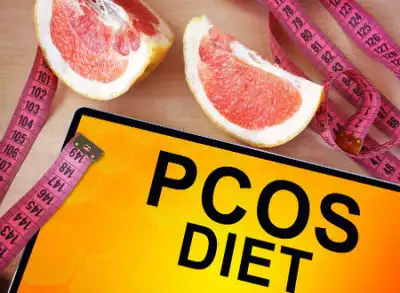Adjusting Lifestyle to Treat Polycystic Ovary Syndrome
PCOS is a prevalent ailment that impacts women in their reproductive years and has implications for their metabolism, reproduction, and mental health. According to international evidence-based recommendations for PCOS, weight and lifestyle management (diet, exercise, and behaviour modification) constitute first-line therapy.
For the best activity and diet plan for PCOS/PCOD in Patna-Bihar these advise adhering to population-level nutrition and physical activity instructions, but research and interest in the potential benefits of adding psychological and rest interventions, along with a variety of traditional, complementary, and integrative medicine (TCIM) methods, are still ongoing.
There is insufficient data to support the recommendation of a particular diet composition for PCOS; however, strategies such as altering the quantity or quality of protein, carbohydrates, or fat typically have comparable effects on PCOS presentations. In terms of physical activity, there is encouraging data to suggest that providing intense aerobic exercise can enhance insulin resistance, body composition, and cardiorespiratory fitness.
Given that women are more likely to experience clinical and subclinical in nature sleep disturbances and to have poorer emotional well-being, mental and sleep measures are also crucial because they may limit the impact of these conditions on positive lifestyle changes.
Although improving sleep and mental health with an expert’s PCOS/PCOD diet consultation in Patna-Bihar may help with PCOS symptom management, there is insufficient data to determine how effective clinical therapies are. The use of TCIM strategies by PCOS-affected women is increasing, particularly the use of supplements and herbal medicines.
Nevertheless, there isn't enough data available right now to justify integration into standard clinical practice. The most encouraging results from studies looking into inositol supplementation show reduced hyperandrogenism and enhanced metabolic profiles.
Types of PCOS
The condition known as polycystic ovarian syndrome, or PCOS, has increased in frequency amongst Indian women in recent years. Reproductive hormone imbalance is thought to be the root cause of PCOS. It also creates problems during pregnancy and may result in the development of tiny cysts in one or both ovaries. PCOS dietitian Rukhsana Azhar from Diet4u Wellness claims that this illness affects one in five Indian women. But you should know exactly what kind of PCOS you have before looking for a treatment.
Insulin sensitivity PCOS
The nutritionist claims that in 70% of cases, it happens. This kind of PCOS is brought on by an illness known as insulinoma, which develops when cells lose their sensitivity to the effects of insulin. Among its symptoms are fatigue, sugar cravings, and abdominal weight gain.
Treatment for this can involve regular movement and exercise. Choose an appropriate diet instead of foods heavy in sugar. To control insulin levels, minimize stress and get enough sleep. Magnesium, chromium, NAC, and inositol supplements can be beneficial.
Adrenal PCOS
This happens amid an extremely stressful time. High cortisol and DHEA levels are marked indicators.
Practice yoga, meditate, and get enough sleep to lower your stress levels. Steer clear of intense exercise. The nervous system and adrenal glands can be supported by magnesium, vitamin B5, and vitamin C.
PCOS with inflammation
The cause of this kind of PCOS is persistent inflammation. PCOS is brought on by high testosterone levels, which are raised by an unhealthy diet and way of life. Symptoms include headaches, unexplained fatigue, rich C reactive protein (above 5), and skin conditions like eczema.
You can maintain good gut health by repairing leaky gut tissue, enhancing digestive enzymes, and maintaining a balance of gut bacteria. Steer clear of foods that cause inflammation. Use antioxidants like NAC, turmeric, and omega-3 fatty acids as natural anti-inflammatories to help yourself.
After-medication PCOS
After stopping the use of oral contraceptives, this happens. Dt. Rukhsana Azhar claims that stopping the artificial progesterone pill "causes an increase in the ovaries," which can lead to PCOS. The condition may get worse after taking the medication, but it can also temporarily stop the symptoms.
This kind of PCOS is reversible and only lasts temporarily. Reduced stress and sound sleep are beneficial. Zinc, vitamin B6, magnesium, and vitamin E are beneficial nutrients.
To control polycystic ovarian syndrome (PCOS) symptoms and avoid complications, physicians frequently advise changing one's lifestyle.
Lower Your Carbohydrate and Sugar Intake
The ineffective use of the hormone insulin by the body is known as insulin resistance, and it is common in women with PCOS. The body uses sugar or glucose from food as fuel when the pancreas produces insulin. Moreover, it aids in controlling blood sugar. Consuming low-in glucose and other straightforward carbohydrates may be advised by your doctor to lower blood sugar.
A diverse range of foods from different food groups, including lean meats like chicken, fish, vegetables, and fruits, as well as high-fiber grains, make up the ideal diet plan. Physicians recommend concentrating on foods with low glycemic index and low sugar and fat content. Foods with a low glycemic index help your body use meals as energy instead of storing it as fat by releasing insulin gradually and steadily. High-fiber foods also aid in blood sugar regulation.
Since sugar is produced from carbohydrates, it's a good idea to restrict your intake. Refined carbohydrates are found in refined foods, particularly white flour, potatoes, rice, and sugar. Try to stay away from them. Sugar-filled beverages, such as soda and juice, should also be avoided.
Control Your Weight with the help of a PCOS dietician in Patna-Bihar
Not all PCOS-afflicted women are overweight, but many are. They might gain weight over time. Numerous health issues, such as fertility problems, diabetes type 2, and heart disease can result from that.
Diet4u Wellness's registered dietitian, Dt. Rukhsana Azhar, can design a low-fat, low-calorie diet to help you lose weight. They can instruct you on how to use calorie-counting tools or write down the food you eat. Another essential component of weight loss is monitoring portion sizes.
Exercise Often
Exercise regularly has several advantages for PCOS treatment. It lowers insulin resistance by increasing muscle mass and burning calories, which aids in the fight against obesity. High levels of cholesterol and other hormones, like testosterone, can also be lowered with exercise.
Sleep Quality Affected by PCOS
A sleep disorder may be more likely to develop in PCOS patients, as was previously mentioned. Long-term sleep disturbances can significantly exacerbate symptoms. Now, let's discuss the most prevalent sleep disorders linked to polycystic ovary syndrome.
Sleeplessness (Insomnia)
The incapacity to obtain adequate sleep is called insomnia. Falling and staying asleep can be difficult for those who suffer from insomnia. Irritation, low energy, and mood swings can all be consequences of insomnia.
A Diabetes Journal study found that individuals with sleep issues frequently had insulin resistance. The insulin resistance rate in PCOS patients is at least 70%!
Insulin resistance causes the body to constantly try to control blood sugar levels, which interferes with the body's ability to fight or flee. Sleep issues and PCOS can be made more complicated by issues with glucose synthesis, which can make you feel exhausted but make it harder to go to sleep.
Your insomnia may be primarily caused by insulin resistance, but the absence of sleep it produces can cause additional hormone disruption. For instance, prolonged sleep deprivation can raise cortisol levels, which have been related over time to greater inflammation and increasingly severe PCOS symptoms.
Treatments for PCOS-related sleep difficulties
Although there isn't a single, effective method for increasing the quantity and quality of your sleep, there are a few things to think about that work well for most people.
Creating a Sleep Schedule
Creating a sleep schedule can help you get better quality sleep at night and get more of it. The most crucial factor in optimizing the caliber of your sleep is your sleeping schedule.
You and your coach can discuss the following general advice:
Reduce the amount of time you spend using screens by trying to avoid them for a minimum of thirty to sixty minutes preceding bed. The longer you leave your TV, laptop, and cell phone out of sight, the better!
Take blue light glasses into consideration. Research has shown that blue light from digital displays can be especially irritating to the eyes and disrupt sleep. Blue light glasses may filter out blue light. Although many people notice a difference when wearing them throughout the day, these can be especially beneficial in the early hours and right before bed.
Try to spend as much time in the sun as you can in the morning. This will help you synchronize your circadian cycle. If you can spend time outside during the day, that's an extra point!
As most people are aware, it's not a good idea to eat immediately before bed. Give yourself some time to process your food after dinner. A small protein-rich snack before bed could assist individuals with the regulation of blood sugar issues and maintaining blood sugar balance, though eating a big meal and then falling asleep right away probably won't make one feel too good. TL; DR In any case, make sure to eat a sufficient amount at dinner and discuss with your coach whether it would be wise to try to allow your body extra time to digest.






